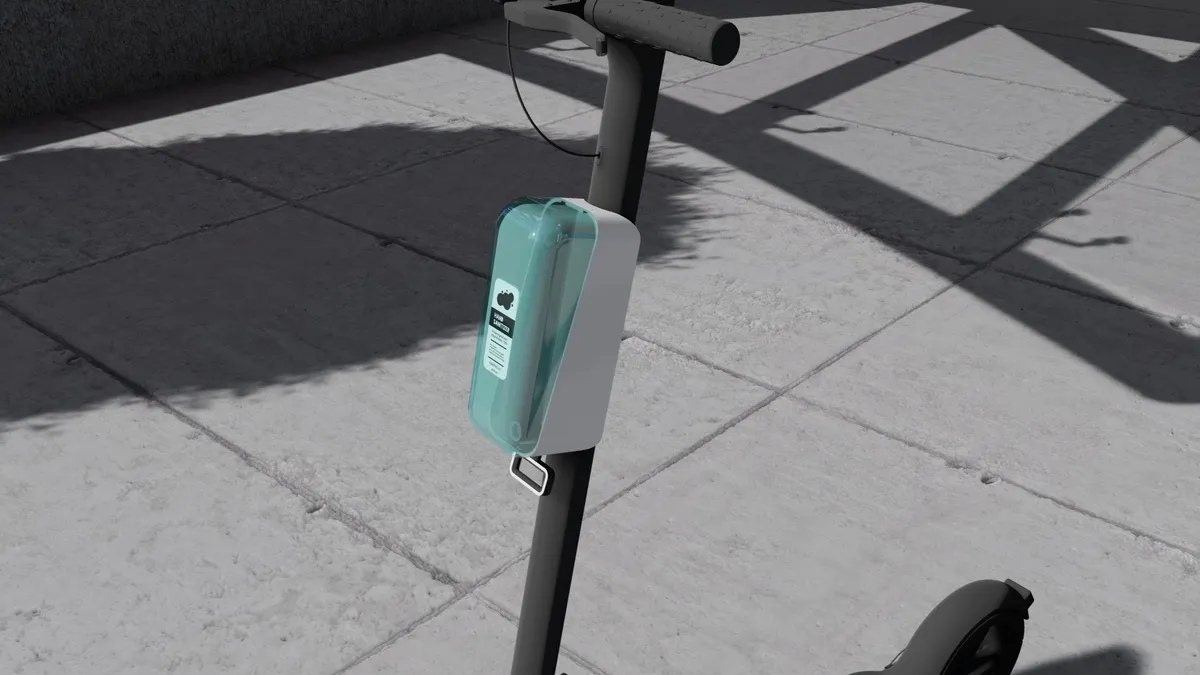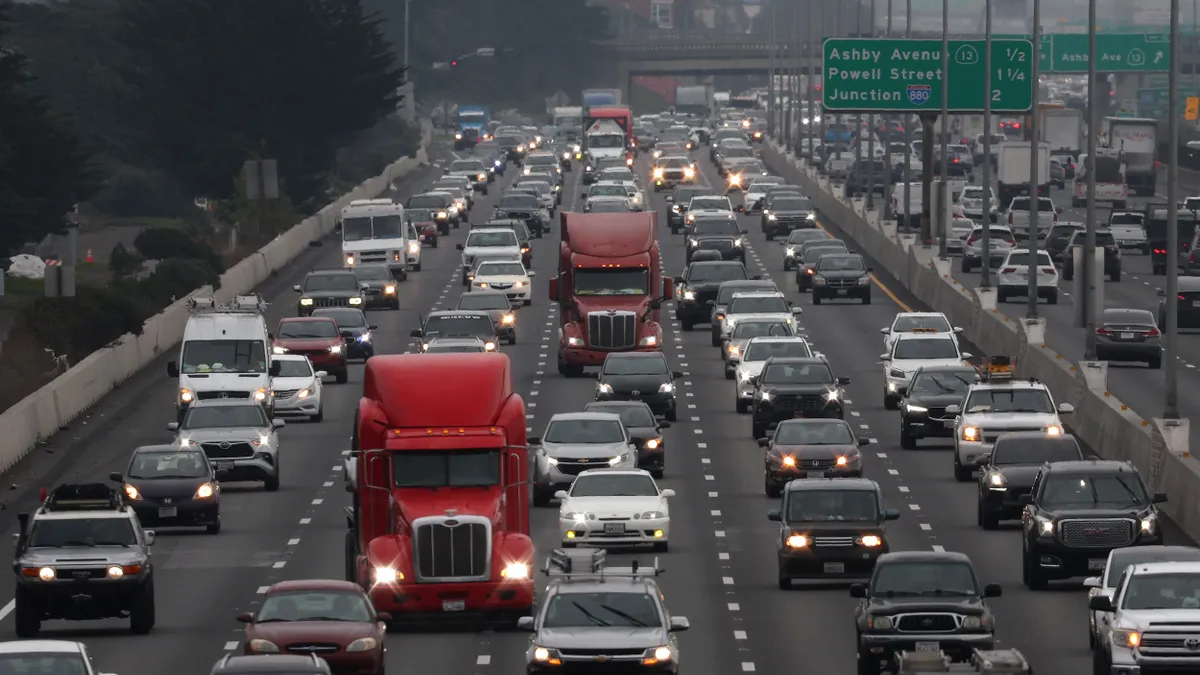On a monotonous work day in July 2019, Denver resident Michael Barnett arrived at work scrambling for soap after dirtying his hands on an e-scooter. Barnett had been touting the scooters as a fun alternative to his typical commuting mode, but this time, a lack of device sanitation left Barnett dissatisfied and in search of a solution.
Many urban transportation modes, including public transit and some cab services, offer hand sanitizer to ensure cleanliness between riders, Barnett said. So why don't e-scooters? "It just seems so obvious to me," he said.
After months of chewing on the question, Barnett and a few friends filed a patent for a scooter sanitization solution powered by the internet of things (IoT), developed to fit all scooter models. The patent is still pending, but its potential consumer value may have increased amid the ongoing coronavirus (COVID-19) pandemic.
"COVID-19 is highlighting the importance of needing hand sanitizer," Barnett said. And as micromobility operators scramble to keep riders safe and reduce the risk of transmission, these entrepreneurs may have developed a viable solution.
'The power of networking'
After dreaming up the idea for the scooter-compatible hand sanitization system in July, Barnett, who graduated college in May 2015 and works full time in sales, shared the concept with his New Orleans-based buddy Drew McCluskey. Though the City of New Orleans does not permit e-scooters, McCluskey was familiar with the devices due to his work as an equipment manager for the NFL's New Orleans Saints.
Saints running back Alvin Kamara is a vocal e-scooter fan, even receiving a custom scooter from Bird in 2018. McCluskey brought the idea to Kamara, who was able to connect the entrepreneurs with micromobility executives to get the ball rolling on developing the system.
"The power of networking was huge, it all came to life," McCluskey said.
Backed with the interest and guidance of industry leaders, Barnett and McCluskey were ready to move into concept design. The friends tapped their networks to find Cole Harding, a senior at the University of Colorado, Denver with a passion for design.
By using the "newest in rendering technology," Harding developed professional-grade drawings of the hand sanitization concept to be sent to a patent attorney, he said. With these renderings, KirbyPod — named after Barnett's grandfather — was born.
The technology
The design of the KirbyPod system is simple: a hand sanitizer unit — similar to one found in a commercial bathroom, Harding said — is fit with IoT integration and affixed to the T-bar of an e-scooter. The unit holds a sealed pod of liquid hand sanitizer to simplify the refilling process, and the sanitizer comes out in an atomized form to efficiently cover riders' hands.
"We have to make these as small as possible to be able to fit on the front of the scooters without weighing them down or affecting aerodynamics too much," Harding said.
While the intended use of the hand sanitizer is relatively basic, the integrated IoT capabilities make this product patent-worthy, the team said. The technology allows fleet operators to lock the sanitizer systems; can alert operators of low or empty sanitizer pods; and allows operators to send push notifications to riders reminding them to sanitize their hands.
"We haven't found any competing technologies in terms of micromobility," Harding said.
The possibilities ahead
While the patent for this device was filed pre-COVID, it may be able to serve as a solution to some of the major challenges micromobility companies are facing amid the health crisis. Leading operators including Bird and Lime have committed to increased frequency of vehicle disinfection, yet that approach doesn't actually address the problem, Barnett said.
"Even if you can prove those scooters are being cleaned every night, if the person of the day who hops on them is sick, coughs in their hand and grabs the scooter, then it’s already contaminated for the rest of the day," he said. "They’re not really solving the issue."
He suggested that health crises similar to COVID-19 are likely to occur again, therefore "it’d be a good idea to go ahead and attack the problem as opposed to putting a Band-Aid over it."
The team behind KirbyPod is searching for a manufacturer who can "convey our vision and make the best product that people want to use," Harding said. But the plans beyond that step remain unwritten. The team is considering getting investors involved to build out these units, but is also open to selling the patent to another micromobility company.
If they take the latter route, Harding said he would pursue a career in architectural design, while McCluskey would continue his work in the NFL. Barnett said he would like to explore opportunities in consulting for micromobility companies, but if that doesn't happen, he would be satisfied earning recognition as someone with strong ideas and entrepreneurial talent.
"We really love the idea of micromobility," Barnett said. "I really do love what their goal is and what the companies are trying to do. I think we’d all be interested in it."




















